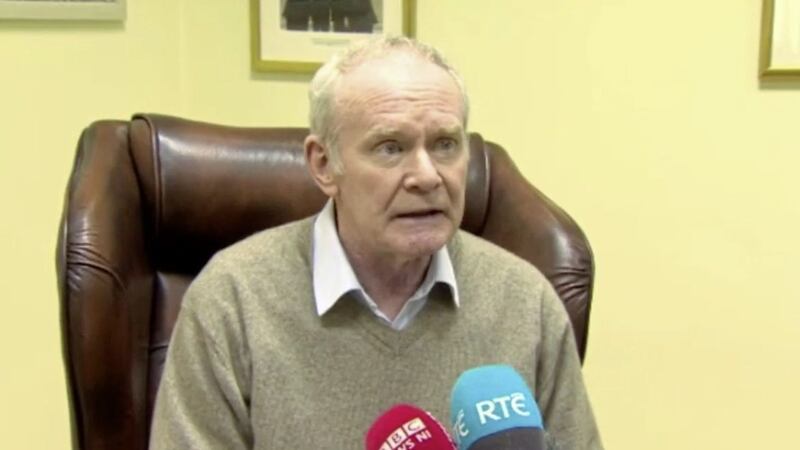The collapse of the power-sharing executive and rapid deterioration in the relationship between the governing partners might have been triggered by the appalling manner in which the DUP handled the unfolding of the RHI scandal, but the root cause relates to the DUP’s hostility to the notion of genuine partnership and the nature of the power relationship between the two governing political parties.
Ensuring that revived structures (post-election) are stable and durable will be the primary focus for all of the main players, yet that will only happen if the root causes are decisively addressed. That poses real challenges to not just the DUP, but also to Sinn Féin.
The DUP have endured a torrid six weeks.
The incredibly arrogant manner with which senior party figures have conducted themselves throughout this period betrays a sense of entitlement to unfettered reign that is incompatible with genuine partnership in a divided society.
And yet, prior to the RHI issue precipitating the relationship breakdown, Sinn Féin and the DUP had appeared to be firmly wedded to the notion of a shared executive in which their differences were largely dealt with in private.
The Fresh Start executive was bought into by the two parties for fundamentally different reasons.
For the DUP, it represented an opportunity to remain firmly in power at Stormont as the dominant player in a mandatory Executive coalition that was a necessary evil.
For Sinn Féin, a deal meant the continued existence of the devolved institutions, in itself the party’s priority short-term objective in the north, allowing them to further cultivate a reputation as a stabilising influence within northern politics.
Yet the limitations of Sinn Féin’s northern aspirations had already sparked unease and disillusionment within a nationalist community increasingly frustrated with the manner in which republicans appeared to be playing second fiddle to a rampant DUP at Stormont.
Martin McGuinness’s resignation was a direct consequence of the leadership reacting to the strength of sentiment from within the nationalist and republican base communities telling them that they could endure no more.
How things were allowed to get so bad throughout the years in which Sinn Féin were a fully-fledged executive partner to the DUP is something that should be exercising the minds of senior republicans.
Attributing blame to the DUP on the grounds of arrogance and antipathy to genuine power-sharing and equality is the easy part.
But there is a pressing need for Sinn Féin to recognise that the party’s own failings to deliver through the institutions were a central contributing factor exacerbating nationalist disillusionment over many years, as witnessed in the declining nationalist turnout at successive elections.
Accepting that poses profound questions and challenges for the leadership of a party that has so far failed to deal effectively with the issue of a transition process which must involve replacing a trusted old guard, valued for attributes necessary during a conflict and peace process phase, with new faces equipped with the skills set and experience profile to compete in the legislative arena.
A sharper, hungrier and harder Sinn Féin is required to re-establish a political equilibrium in local politics between unionism and nationalism. The internal culture and practices within Sinn Féin continue to mean that the party experiences significant difficulties in attracting and retaining prospective representatives and advisers with the necessary skills and professional expertise to raise the performance of the party at executive and assembly level, compounding the sense of subordination and hindering nationalism’s capacity to use the devolved institutions to seize and set the agenda and establish parity with a DUP-led unionism still not at peace with peace.
Enduring stability and progress in the north of Ireland will be contingent upon not just the DUP embracing partnership in spirit and deed, but on nationalism putting its best foot forward.









